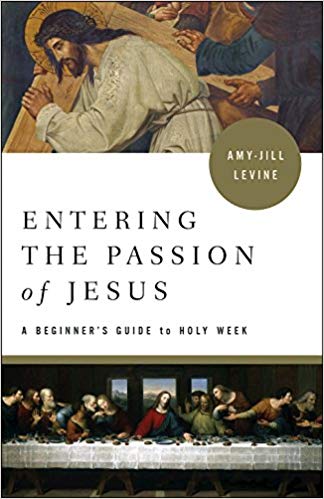Q. You chose to focus mainly on the Matthean account of the beginning of Passion Week. Why that account mainly? You highlight as well the tensions during Festival times for the rulers, including both the Jewish authorities and the Roman governor, due to the huge crowds present. Why do you think Jesus chose Passover, rather than Sukkot as the time to make his grand entry into the city? Is it because this was the biggest of the festivals, or perhaps the one most associated with sacrifice— the Passover lambs? Some have suggested that the pilgrims Jesus entered with were quite naturally singing the Hallel Psalms from near the end of the Psalter, and did not realize the relevance of those songs as applied to Jesus in the way the Gospel writers do. Is this ironic, and maybe based in what actually happened? Why do you suppose Jesus chose a donkey (ala Zechariah) rather than a war horse to ride into town on?
A. Matthew is the liturgically prominent Gospel for Palm Sunday in many congregations. John gives a hint of Sukkot in the use of the Palms (which, ironically, are only in John). Passover is the feast of freedom, so this would be an appropriate time for any messianic action. The pilgrims may well have been singing the Hallel psalms, but that is an historical guess. References to these Psalms in connection with pilgrimage festivals come from later rabbinic literature. I think Jesus chose a donkey both to conform to the Zechariah verse and because, practically speaking, that was what was available.












